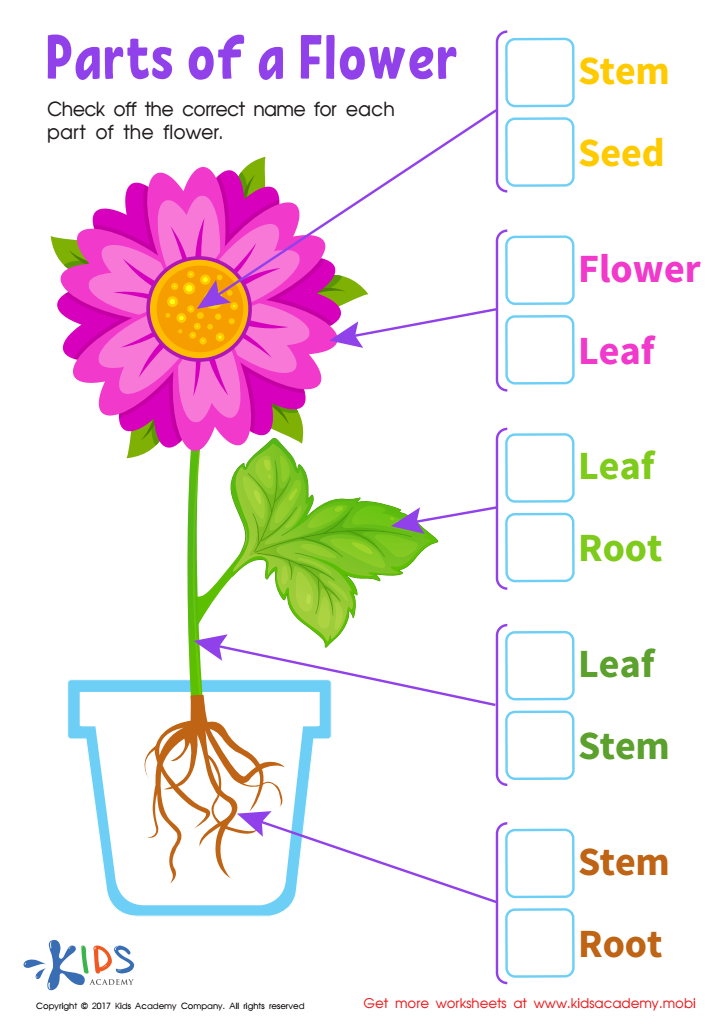Life Science Worksheets for Ages 3-5
3 filtered results
-
From - To
Nurture your child's curiosity with our Life Science Worksheets designed for ages 3-5! At Kids Academy, our engaging and educational printables introduce young learners to the wonders of life sciences, from plants and animals to the human body and habitats. Perfect for preschoolers and kindergarteners, these activities support early learning with fun, hands-on experiences that make science come alive. Whether at home or in the classroom, our thoughtfully crafted worksheets will help your little one explore, understand, and enjoy the world around them. Start their journey of discovery today with Kids Academy's Life Science Worksheets!


Parts Flower Printable


Herbivores Printable


Carnivores Worksheet
Introducing life science to children ages 3-5 is crucial for several reasons. At this tender age, children's brains are exceptionally receptive to new information, and they possess a natural curiosity about the world around them. Life science taps into this curiosity by exploring plants, animals, human biology, and ecosystems.
Understanding life science helps young children develop observational skills and critical thinking. They begin to notice patterns, make predictions, and differentiate between living and non-living things. For example, learning about plant growth by observing seeds sprouting can be fascinating and educational.
Moreover, life science fosters a sense of wonder and respect for nature. Children learn about the interdependence of all living things, inspiring them to care for their environment. It's an early lesson in stewardship and sustainability, which is vitally important in today’s world.
Furthermore, learning about life sciences can improve language and communication abilities. Discussing nature and scientific terms enhances vocabulary and encourages inquisitive dialogue. Children also develop fine motor skills through hands-on activities like planting or examining leaves.
Lastly, early exposure to life sciences can set the foundation for a lifelong interest in science and critical societal contributions. Parents and teachers nurturing this interest can open doors to future careers and innovations in diverse scientific fields.
 Assign to My Students
Assign to My Students















